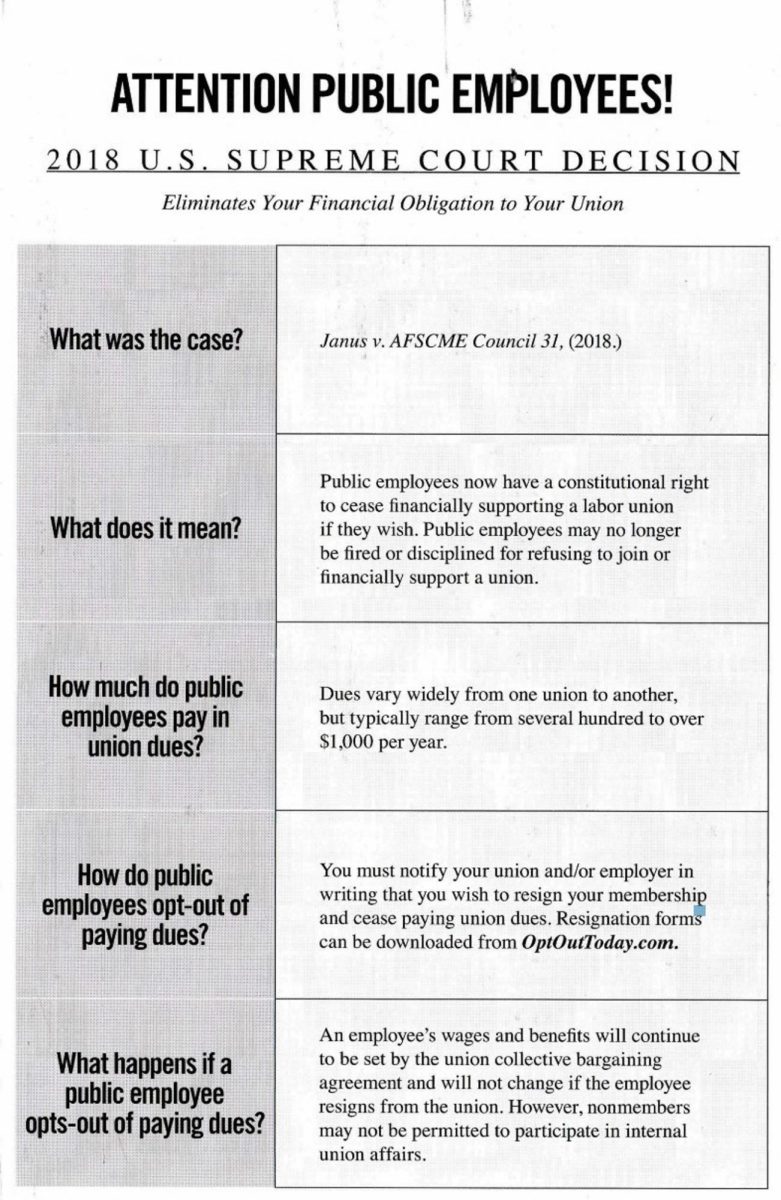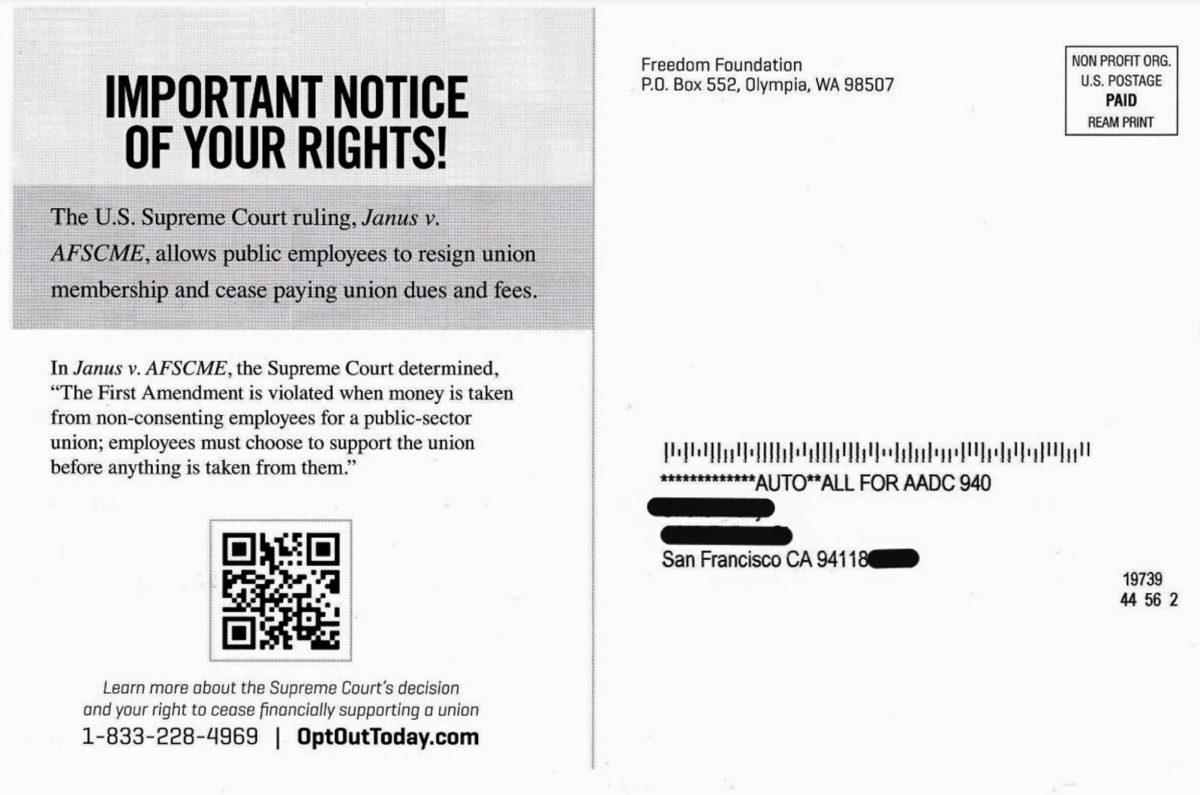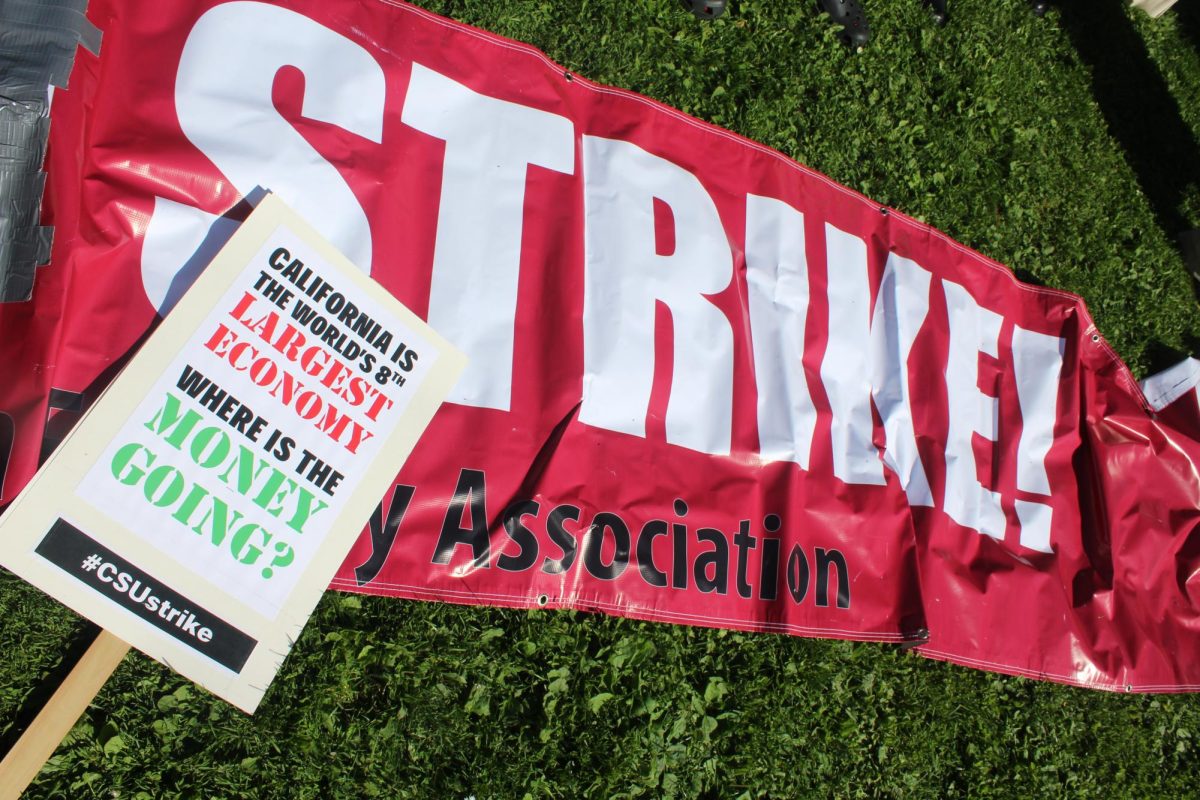The Freedom Foundation has been targeting CSU faculty by sending them postcards about their union rights and the option to opt out from financial obligations to unions.
The postcards specifically mention the case Janus v. American Federation of State, County, and Municipal Employees, which was passed in 2018 with a 5-4 vote by the Supreme Court. It was a case that covered whether or not unions could charge local and state non-union public workers fees for union services.

Zac Zavala
The Freedom Foundation is an anti-union organization that was established in 1991. The organization is “a battle tank that’s battering the entrenched power of left-wing government union bosses who represent a permanent lobby for bigger government, higher taxes, and radical social agendas,” according to their website. The Freedom Foundation is backed by billion-dollar foundations established by names that include David Koch and Helen DeVos, both Republican Party donors.
Sheila Tully, a lecturer at San Francisco State University since 1996 and former faculty union president for SFSU, was one of the recipients of the postcards.
“The Freedom Foundation was one of the well-funded anti-union groups that brought the Janus v. AFSCME case up to the Supreme Court,” Tully said. “What they argued was that workers, who did not believe in unions or did not agree with the union’s political positions, should have the constitutional right not to pay union dues.”
The Janus v. AFSCME case is the third time the Supreme Court has examined this issue in the past 10 years. The issue surrounds whether the fee that unions charge non-members for services is a direct violation of the First Amendment. Unions by law must represent every worker whether they are members or not.
“By encouraging union members not to pay dues, the Freedom Foundation hopes to weaken the union movement,” Tully said. “Without dues, the union doesn’t have the resources to launch strikes or other union-related activities.”
These postcards are a reminder from the anti-union corporations to not pay their dues.
“No one was surprised with the outcome of the Janus v. AFSCME case given the makeup of the Supreme Court,” Tully said.
In preparation for the court’s decision, many unions poured additional resources to educate members about their rights in the workplace and other resources they had access to.

Zac Zavala
“When I first received the postcard from the Freedom Foundation, I analyzed it as that they’re frustrated and don’t want to see these waves of strikes across the country,” Tully said. “I found that very interesting. At the end of the day, it’s about power and they don’t want to lose it.”
Notable strikes include the 2018 West Virginia teacher strike, which closed West Virginia schools for a two-week period, and the recent United Auto Workers strike.
“When I received the postcard, I felt that the goal of the Freedom Foundation was to weaken the union,” said Katie Kooistra, a physics lecturer at SFSU.
Though union members have the right to opt out of paying dues while still receiving union benefits, members have to opt into paying union dues. This is not an automatic deduction from a member’s paycheck.









Jeff Rhodes • Oct 16, 2023 at 12:35 pm
“hat they argued was that workers, who did not believe in unions or did not agree with the union’s political positions, should have the constitutional right not to pay union dues.”
You left out a critical element here. Unions don’t simply hold political positions. They act on them by funding their preferred candidates and causes with dues money confiscated (until Janus) from workers who don’t share those positions. The question isn’t whether workers have a right to not pay dues (although they clearly do). It’s whether unions can compel political speech from workers as a condition of employment. The court rightly decided they cannot.
Matt • Oct 13, 2023 at 1:43 pm
How do you define “far-right?” It seems like everyone on the left uses that term for anything they disagree with. The issue of labor and ‘Right to Work,’ while being emotionally divisive, is not exactly “far right,” it is pretty common philosophical position on the entire ‘right.’